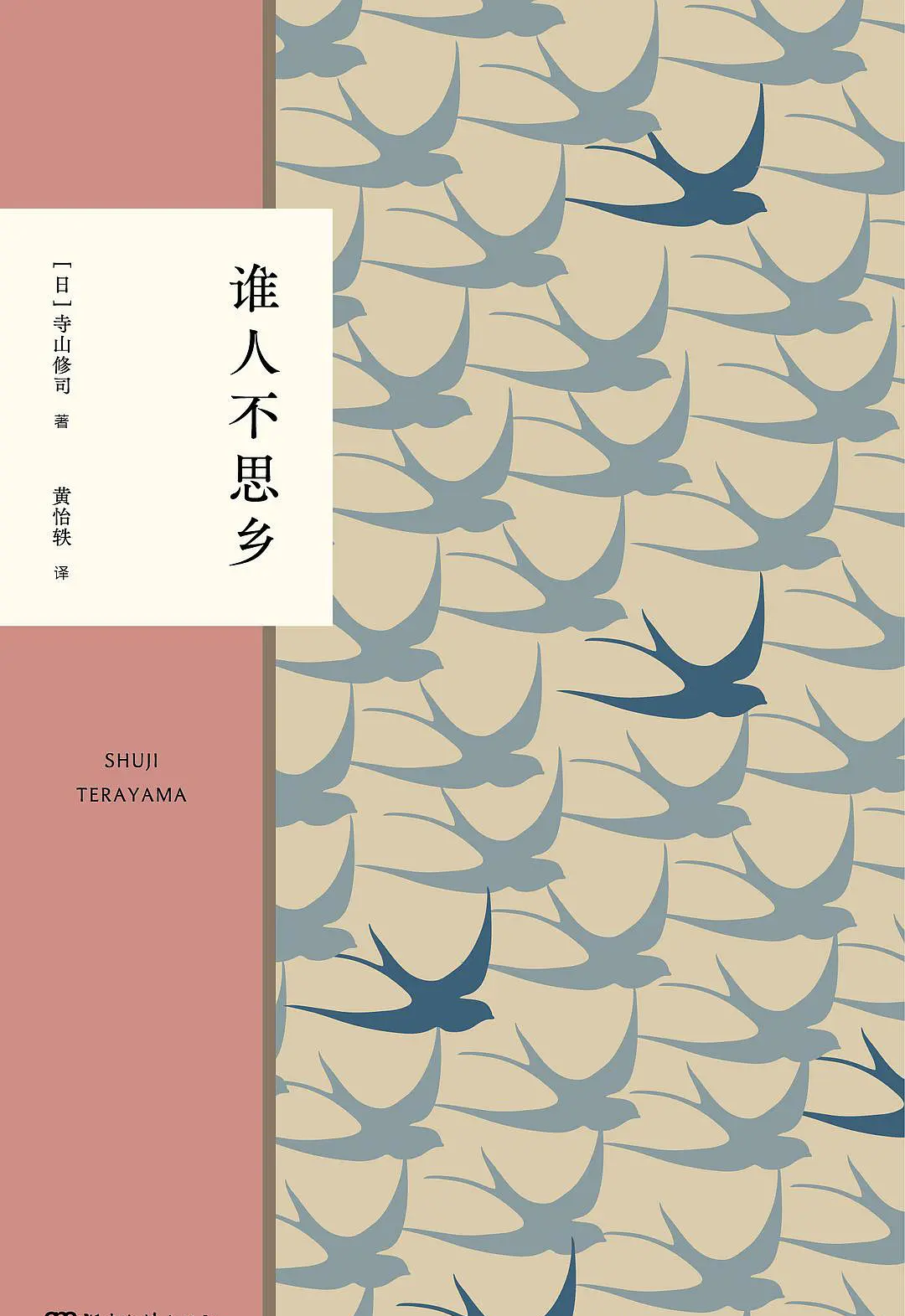I am one meter seventy-three, weigh sixty-five kilograms, have ab blood, am twenty-two years old, and my good song is "Who Doesn't Homesick".
Born in 1935 in Aomori Prefecture, Japan, Shuji Terayama graduated from Waseda University and began reading and composing haiku short songs and novels in his teens. He loved horse betting and boxing, directed five films, founded experimental theater companies, and published novels and poetry collections that formed his unique fantasy aesthetic. Who Doesn't Homesick is claimed to be the autobiography of a writer, but his literary friends questioned his autobiography and writing, first and foremost as a traditional poet, at the same time as a horse racing critic, and also as a disgraceful avant-garde theater director of the 1960s. Shikata inuhiko commented: He is a dangerous demagogue who persuades teenagers to run away from home and commit adultery with close relatives, and is also an essayist who has written several autobiographies full of lies. Hiroshi Hotamura said Terayama felt as if the world would collapse if the truth was told. So make a gorgeous thing that looks like reality as a substitute. This makes me feel that we don't actually have access to the truth at all, we can't describe the truth at all. This artist, who is difficult to describe in a specific word, uses his unique and strange words, delicate words with mirror language, to show a world between the virtual and the real, belonging to Shuji Terayama.

There is uncertainty about the date of birth in the opening chapter of "The Whistle".
I was born on December 10, 1935, in a small station on the north coast of Aomori Prefecture, but the date of birth registered on the register is January 10, 1936. Why is there a 30-day error? I asked my mother and got the following answer:
"You were born on a speeding train, so your place of birth is unknown."
The date of birth is uncertain, the place of birth is different, even the mother's name has three, ten-year-old him and nine-year-old Akying girl in the moonlight exposed body so described, in the blink of an eye by the author a sentence "However, this story has never happened" gently covered, so that there are many words between the virtual and the real, intentionally or unintentionally Shuji Terayama seems to hide himself, but left the world and his own thinking between the words, which is completely different from the autobiography full of skills in writing, Terayama Shuji is very frank, the emotions of the teenager are cute, The slightly awkward relationship with his parents dissects Aomori and his childhood in the middle of excitement and pungent sorrow.
Revealing the past and recalling the past is actually another recall of pain for the author, to explore the source of pain. For example, in his unhappy family, where his father died of alcoholism and his mother was an illegitimate daughter, the family has been broken and drifted from Aomori, which was burned down, to Komagi, where U.S. troops were stationed. Separated from his mother and separated from his father, the child was either addicted to the world of books or wandered out in different corners to peek into the chaotic world.
I have been thinking about the tragic nature of the "entanglement between people" in these events. Between man and other unknown things, there is a great tragedy hidden. This tragedy has an invisible power, leaving nowhere to escape, and teenagers can only watch helplessly as it spreads all over the world.
Very similar to the plot of the movie "Forrest Gump", Shuji Terayama's growth is accompanied by the most turbulent special period of the whole country, many texts involve the political environment at that time, the whole book is looking back with double memory, children's eyes overlap with adult thinking, and those things with tragic nature will be infinitely magnified. The constant chanting of "Who Doesn't Homesick", the smell of cicadas with the usual aroma of a thin baked rice cake, and the moonlight that seems to be in the story that night are all the existence of his hometown that is difficult to get rid of, and he wants to escape to Tokyo, and he goes to Tokyo? Tokyo is an elegy, whether it is the obsolete Kitano Osha on the racecourse, the tavern where drinks, buys, and gambles, or the student movement that throws away books, it is full of the confusion and pain of Shuji Terayama's youthful memories.
"Pastoral Dead Sacrifice" is the autobiographical film of Shuji Terayama, the adult self and the childhood runaway from home meet, the memory between the two crossed, even the mother has become the hysterical image of controlling children in "Who Is Not Homesick", the whole movie is full of romance, loneliness and cruelty, the teenager's run away from home not only to escape from his mother, but also to escape from himself, he wants to find freedom.
Thankfully, books gave Shuji Terayama a brief happiness and allowed him to find creative freedom in his poetry.
I wish that when I talk about happiness, language can have its own little universe like a bird and soar freely. Or, at least, like the whistle of a train, it contains encouragement and affection.
Everything in the past is nothing more than a metaphor. The nostalgia of Shuji Terayama's soul living in death makes him always sober gaze at himself objectively, whether it is the melancholy Aomori, or the childhood dream place tokyo at the intersection of life, Terayama Shuji's hometown points to his heart, he uses absurdity, blackness, radicalism to resist the destruction from childhood, so the song "Who does not homesick" is so sad, this lonely and lonely Terayama Shuji commander infinitely hopes that he can have the happiness that he has not had.
#好书推荐 #